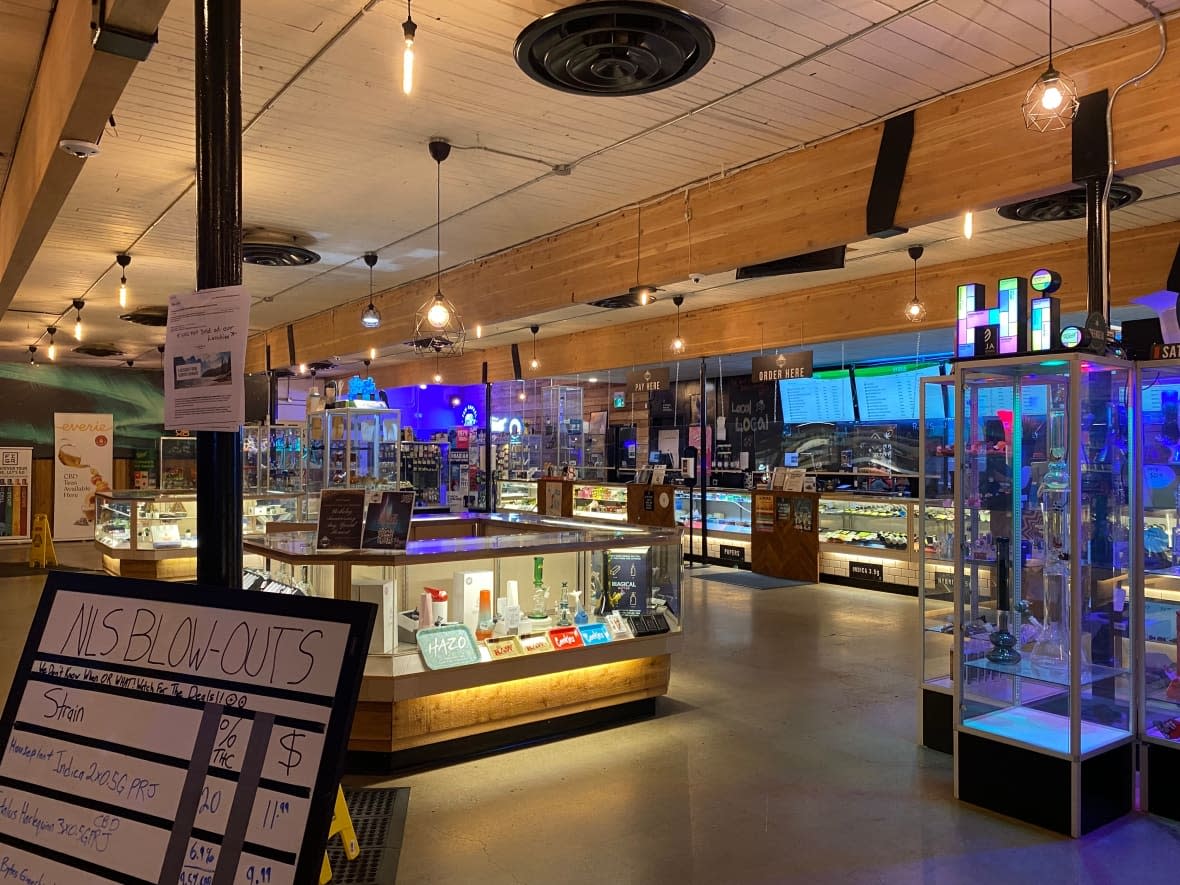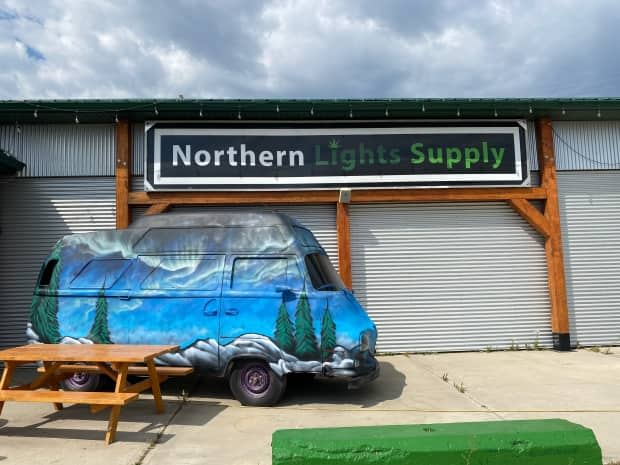Alberta cannabis sales slow to grow as online identity verification deters consumers, say retailers

Some licensed cannabis retailers haven't seen a high uptake with online cannabis sales since Alberta allowed private companies to sell directly online earlier this year.
"As soon as the regulation changed, we onboarded as soon as possible just to capitalize on it," said Derek Shields, owner of Northern Lights Supply in Nisku, Alta.
In March, Alberta Gaming, Liquor and Cannabis shut down its provincial online sales website. Since then, of the 765 licensed cannabis retailers in Alberta, 232 operate online.
The two popular kinds of online sales are click and collect, where customers can place an order online and pick up their product in person, or delivery.
AGLC regulations require businesses to use their own delivery people, Canada Post or a courier service.
After seeing an initial boost in online sales, particularly with click and collect, Shields said the sales have not been enough to make up for the costs of conducting delivery.
"Delivery is very challenging, especially with the cost of staffing, insurance, gas, the vehicle itself," Shields said.
As an independent owner, Shields said between competition with larger chains opening up more stores in Alberta, and the costs of operating online, so far "there isn't really much or any margin to be made, to be quite honest, in delivery."
Two-step identity verification 'cumbersome'
Another hurdle retailers are pointing to is the online identity verification process that customers must undertake in order to view the company's website, and place an online order. This verification is in addition to an ID check at the time of delivery or pick up.
Omar Khan is the senior vice president of corporate and public affairs at High Tide, which operates 52 Canna Cabana stores in Alberta.
"We found that for many consumers, they found that a bit cumbersome," Khan said.
"What we've noticed in Alberta is that additional first step of having to create a profile and upload your ID as a consumer has meant that the growth rate in terms of online sales in Alberta is much lower than what we have seen in Ontario and other provinces," said Khan.

The AGLC said in a statement that they "[require] retail cannabis websites to have robust methods of age verification. To ensure cannabis does not reach the hands of youth through online sales, age verification is required during the initial online sale and at the time of delivery."
While online sales in Alberta allow for both delivery and click and collect, provinces like Ontario only allow delivery via its provincially-run website. Private retailers in Ontario are allowed to use click and collect.
Many provinces, including Ontario, do not require identification to be uploaded online before viewing the website. They ask consumers to declare their age and have their identity verified upon delivery or pick up.
In-person shopping preferred among consumers
Michael Armstrong is an associate professor at Brock University who has researched the business and policy aspects of Canada's cannabis legalization.
He said that online sales across Canada only account for a small percentage of overall sales and consumers prefer to buy in stores due to a number of benefits, including a level of anonymity.
"Number one, they want to see and smell the product. Number two, they like some information from the budtender, some advice," said Armstrong.
"And number three, maybe they want to be anonymous so they flash their ID, pay cash, walk out, there's no record they were ever there."
Armstrong also noted that larger companies may be better able to handle the costs of offering delivery and operating online sales, especially without expecting a high return and with multiple stores centralized in one website.
"Because it involves setting up a website, because it involves arranging a payment system, in Alberta's case you have to collect the ID, that's a lot of extra overhead if you're just an independent store," said Armstrong.
"Going through that extra work and overhead so that you can maybe have a few percent of your sales go that way? Doesn't sound very attractive."

 Yahoo Movies
Yahoo Movies 
